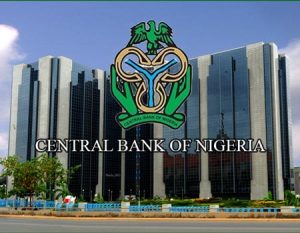Analysts outline political, monetary, fiscal policy expectations ahead May 29
April 10, 2023524 views0 comments
BY OUR REPORTER
Nigeria’s political economy, monetary and fiscal policy environment in the post-Buhari administration is the subject of intense scrutiny and permutations by economic, investment and finance analysts who are anxiously looking to bid goodbye to the last eight years and welcome a new era.
And ahead of the May 29, 2023 inauguration of a new president for the country, analysts at investment banking house, Lead Capital, have made far reaching projections of the possible direction and influences that would shape the president’s actions and activities on the political economy, monetary and fiscal policies of his administration.
Although the presidential candidates of the People’s Democratic Party (PDP), Abubakar Atiku, and Labour Party, Peter Obi, have gone to the election petition tribunal at the Court of Appeal, the analysts say their expectations for the rest of the year are based on “now that we have a president-elect”.
According to the analysts, considering the present political economy conditions of the country, the incoming president’s broad policies may depend heavily on public-private-partnerships (PPP), noting that any growth objectives by the incoming president will have to be achieved through increased spending and borrowing.
They also project that in order to accommodate the expected high government spending and borrowing, monetary policy is likely to be directed to serve fiscal objectives.
The Lead Capital analysts see export promotion that could lead to import substitution to strengthen the naira and remove subsidy as likely to form a major plank of the broad policy direction.
More specifically, broad policy push by the incoming president, according to the analysts, given that a president-elect has emerged, could see the possible attainment of double digit economic growth in four years.
They project high inflation rate, which would be triggered by high government spending with a muted Central Bank of Nigeria (CBN) autonomy; and an acceleration of the current massive internal and external debt overhang.
Concerning monetary policy expectations for the rest of the year after the inauguration of a new president, Lead Capital analysts say these would be outside his control, presumably under an independent central bank.
“Some measures would be outside the control of the president-elect,” they wrote.
Specifically, they see tightening of monetary policy persisting “for as long as inflationary pressures are not subsiding and central banks in advanced countries remain hawkish.”
They note that this will be on the back of the CBN continuing to base its monetary policy committee (MPC) decisions substantially on inflationary pressures.
They also point to the fact that rising interest rates will have implications for Nigeria’s fragile growth, noting that this will also limit the ability of the financial system to provide funds for businesses with the likelihood of lending rates rising in excess of 30 percent.
“Given the structural characteristics of Nigeria’s inflation, a holistic approach is required,” they advised.
According to the analysts, recent inflationary pressures in Nigeria are largely driven by structural constraints that inhibit the supply chain, such as infrastructure and logistic deficiency, insecurity, and regulatory bottleneck, adding that notwithstanding this, they “do not expect any downward movement in MPR in the short term.”
They put this position down to amplified inflationary pressure, despite the constraints brought about by the Naira scarcity, the government borrowing needs and trend of rates in the global market.
But projecting their expectations of fiscal policy under the incoming president, the Lead Capital analysts, say here the president-elect will have some measures within his control and as a result, they warned that fiscal sustainability should be a major source of concern.
They drew attention to the fact that in the 2023 budget, the projected fiscal deficit is 51.9 percent of total expenditure, exceeding the revenue projection, and also adding that based on 2022 (Jan – Nov) performance, over 40 percent of government spending went into debt service, compared with a projected 22.1.
Efforts to diversify the government’s finances appear truncated by the recent ratings downgrade to Caa1 with stable outlook from B3 by Moody’s, the analysts wrote.
“This is on the back of worsening government fiscal and debt position and institutional weakness,” the analysts said, while advising that indefinite expansion of the fiscal deficit needs to be checked.
According to Lead Capital, while the problem of revenue is well established, the unabated expansion of fiscal deficit, relying ultimately on borrowing, needs to be checked as it comes with new debt obligations.

